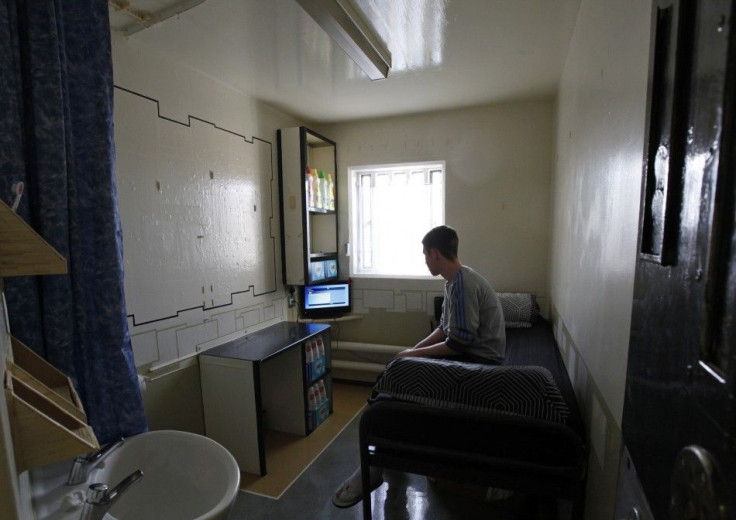European Court Rules British Prisoners Must Be Granted Voting Rights

Some British MPs are outraged by a ruling from the European Court of Human Rights that prisoners must be given the right to vote in political elections.
The Court supported a prior ruling that a blanket prohibition on inmates in England and Wales voting was unlawful.
British prisoners have been barred from voting for 140 years.
However, the court suggested that the British government could have the right to extend voting rights only to certain prisoners, that is, by withholding enfranchisement to the worst criminals, including murderers and rapists.
London now has six months to comply with the court’s ruling, or face the risk of court challenges and incurring large legal costs, including possibly paying compensation to 2,500 prisoners who have filed suit to overturn the ban.
However, UK MPs, who last year overwhelmingly voted to continue the prohibition on prisoners voting, may be irked by European court dictating policy to them.
Prime Minister David Cameron has said in the past that the thought of inmates voting made him “physically ill… They should lose some rights, including the right to vote.”
The case stretches back eight years to when John Hirst, a convicted killer, filed suit to protest his inability to vote.
David Davis, a Conservative MP for Haltemprice and Howden, condemned the Court‘s ruling as an infringement on the rights of Britain’s parliament’s “to decide on matters which are fundamental to the British way of life and which are not appropriate to judicial intervention.”
Davis added: “This will inevitably lead to a clash between the express wishes of the UK Parliament and the assertions of the European Court and will not help the court achieve its important functions in stopping breaches of fundamental rights throughout Europe.”
Another Tory MP, Priti Patel, of Witham, Essex, also condemned the ruling, calling it an “appalling decision.”
“The [British] public will be demanding that the Prime Minister now stands up for British interests and refuses to give convicted prisoners the right to vote,” she said.
“As well as continuing to demand that convicted prisoners get the right to vote, Europe’s out of touch judges have blocked the Home Secretary from deporting [terrorist] Abu Qatada and allowed dangerous foreign criminals to remain in the UK. It is about time real changes are made to prevent out of touch European judges meddling in our laws again.”
A spokeswoman for Cameron said the government will weigh the implications of ruling before issuing a formal response.
“Clearly we need to consider the implications of that judgment on the issue of prisoner voting for the UK,” she said.
“The position for the UK is that… the issue of social policy, including prisoner voting, is a matter for Parliament and it is for Parliament to judge whether and which prisoners should have the vote, and that the court should not interfere with that judgment unless it is manifestly without reasonable foundation.”
Dominic Casciani, a correspondent for BBC, commented: “What happens next? MPs, who have already voted against reforms, will be furious. The court's critics are predicting a constitutional clash. Ministers know they have to come up with something or risk paying compensation to lots of prisoners. Some backbenchers want ministers to publish a bill and then never act on it, technically meeting the court's request and doing no more. But, if something is put before MPs, don't expect more than what's needed to avoid further legal challenges.”
According to British government figures, the number of prisoners in England and Wales reached a record high of 88,179 in December 2011.
The U.S. generally doesn’t permit its huge prison population to vote, although it varies by state.
“Prisoner voting rights are determined by state laws,” said Jamie Chandler, a professor of political science at Hunter College in New York City.
Some [states] allow ex-felons and those on probation to vote, while others ban any felon from voting for life. Eleven states in the South have these laws. Only Maine and Vermont allow the imprisoned to vote.”
Meanwhile, the American Civil Liberties Union said in a report that “almost half of European countries allow all incarcerated people to vote while others disqualify only a small number of prisoners from the polls,” adding that almost all of the countries that disqualify all inmates are in Eastern Europe.
© Copyright IBTimes 2024. All rights reserved.











